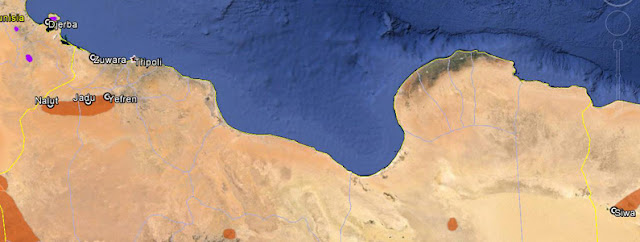So liegen dem Bundeskriminalamt Erkenntnisse dazu vor, dass in arabischen Ländern ein Modus Operandi bekannt ist, der als "taharrush gamea (gemeinsame sexuelle Belästigung in Menschenmengen) bezeichnet wird. Darüber wurde z. B. anlässlich der ägyptischen Revolution von den Medien berichtet.The term as quoted there, misspelling and all, now gets over 116,000 hits on Google News. Most of these hits seem to take this somewhere the German police prudently did not go, leaping with shock or glee to the conclusion that, if Arabic has a name for this phenomenon, it must be deeply rooted in the Arab world indeed. Indeed, at least one prominent typologist who shall remain nameless followed in the same direction, blithely asserting that "there is nothing racist about saying that taharrush gamea (the Arabic term for the gang sexual assault of women) is an Arab custom, part of Arab culture". A closer look at the data reveals that this hasty reasoning is not only incorrect, but results in a profound misunderstanding of the problem for which this name was coined.
[It is thus found by the Bundeskriminalamt that in Arab countries there is known a modus operandi called "taharrush gamea" (group sexual harassment in crowds). This was reported on, for example, by the media on the occasion of the Egyptian revolution. (Update: See comments for a more precise translation.)]
"Taharrush gamea" is a misspelled transcription of an Egyptian pronunciation of the phrase تحرش جماعي taḥarruš jamāʕiyy, literally "group (jamāʕiyy) harassment (taḥarruš)". Until this month, this phrase was no more familiar to me than to any of these reporters, but I had heard of the phenomenon it describes, although only in one country - Egypt. Abdelmonem 2015 and Ebaid 2013 provide some more background on the recent history of sexual harassment in Egypt. Basically, individual harassment has existed forever, there as in other countries, but on Id al-Adha 2006 a new, unprecedented phenomenon appeared: a mob of young men went on a "mass sexual harassment spree" after being turned away from a cinema. This event was captured on video and widely denounced online, but bloggers' denunciations were not enough to prevent it from being repeated in 2008, and then effectively turned into a political tool during the abortive Egyptian revolution after 2011.
This history suggests that the phenomenon, and therefore presumably the name, are less than ten years old. Corpus investigation confirms this: as I could confidently predict even before checking, it gets zero hits on Alwaraq.net, an extensive library of Arabic heritage texts ranging from the Umayyad period to near-modern times. Google Trends gives a more precise figure: it shows up on Google starting in 2013, only following the Arab Spring! However, the frequency of the term is so low that Google Trends' figures for it can hardly be reliable, and we may suspect that in reality it was coined sometime between 2006 and 2013.
The most obvious question this raises, given that most of the suspects are from Algeria and Morocco, not Egypt, is: were they even familiar with this phenomenon, let alone the term? Unfortunately, by 2015 they could well have been: it may have started in Egypt, but it is no longer an Egyptian monopoly. Horrified reports of it - all postdating the Egyptian revolution - can be found online for Morocco (2014), Jordan (2014), and even Saudi Arabia (2013, 2015). The obvious hypothesis is that the massive media coverage of such crimes following the Egyptian revolution was taken by some good-for-nothings as an inspiration rather than as a warning.
Obviously, any editorial writer who wants to draw conclusions from this term's existence should have started by asking themselves: how old is this name, and how widely known is it? Assuming that it represents some sort of age-old Arab custom suggests one set of conclusions, such the New York Times' superfically anodyne description of the attacks as a "culture clash". Knowing that the term seems to be less than ten years old, and has come into wider use only within the past three years, yields quite another: namely, that "mass harassment" is a new crime (or at least a new variant of an old one), appealing to a certain type of "man", and spread virally by satellite TV coverage and videos shared on social media. In which case, the role currently being played by the media may be somewhat less than constructive.


